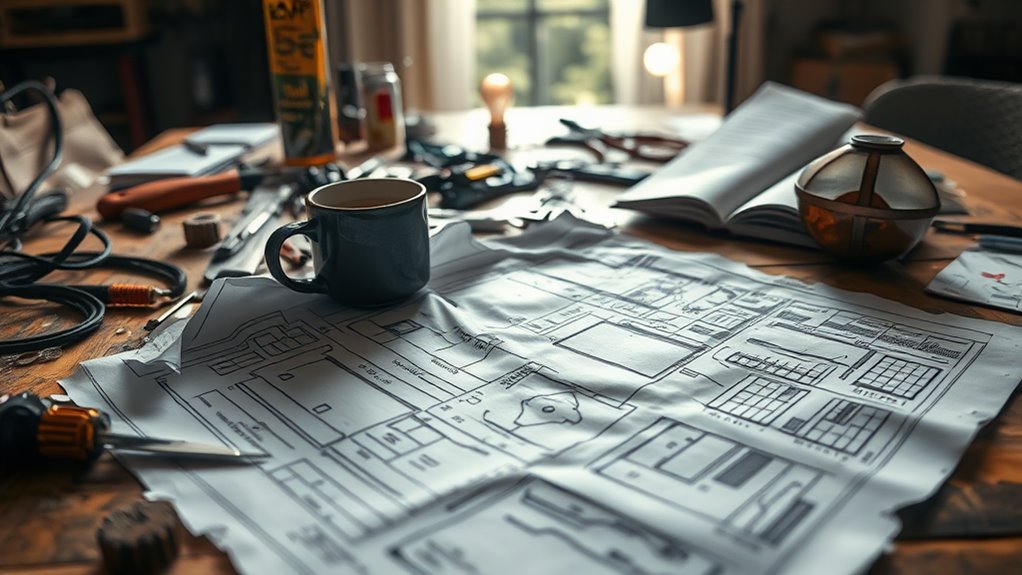No one enjoys failure. It’s messy, embarrassing, and a massive blow to the ego.
We live in a world obsessed with success, plastered all over social media and motivational posters. You see these glorified success stories, and it’s easy to forget that every one of those shiny, victorious moments was likely built on a mountain of spectacular screw-ups.
What we don’t see is the string of failures behind those wins. Failure is inevitable, but more importantly, it’s essential. In fact, failure can be the best teacher, the one that shows you what doesn’t work so you can figure out what does.
How can failure help you succeed?
Failure is a brutal but honest mirror reflecting all your mistakes, missed opportunities, and flaws. And guess what? That’s a good thing.
Because how are you going to get better if you don’t know what you’re doing wrong?
Think about it: when you fail, you’re forced to pause and reflect. It’s life’s way of saying, “Hey, slow down and take a second to reassess.”
This moment of introspection can provide clarity, allowing you to spot weaknesses in your strategy, skills, or mindset that you wouldn’t have noticed if you had just coasted through everything on the first try.

Consider how athletes train.
They push their bodies to the point of failure on purpose. Why? Because only when their muscles break down can they rebuild stronger. The same applies to your professional, personal, and mental “muscles.”
You don’t grow from comfort. You grow from the pain, the struggle, and yes—the failure.
Is failure a form of success?
Yes, failure can be considered a form of success.
Success isn’t always about hitting the bullseye. In fact, it rarely is. More often than not, success comes in the form of lessons, experience, and growth—and failure is how we collect those rewards. So, in a weird twist, every failure brings you closer to real success. It’s the universe’s twisted way of making sure you earn it.
Failure changes your perspective on success. If you’ve ever had a massive failure, you know that it has a way of resetting your ego. It humbles you. The bigger your failure, the more perspective you gain on what success really means. Is it money? Fame? Or is it growth, learning, and becoming better?
Failure sharpens your definition of success and realigns your goals to something more sustainable, more meaningful.
9 Reasons Why Failure is the Key to Success
Alright, now that we’ve established that failure is essential, let’s dig into the specifics.
Here’s why failure is your not-so-secret weapon for success:
1. Failure Teaches You What Works—And What Really Doesn’t
You don’t know what you don’t know. That’s failure in a nutshell.
Every time you try and fail, you’re uncovering what doesn’t work. And that is priceless.
Sure, it stings, but the lessons you learn from it are pure gold. Whether it’s in business, relationships, or trying to cook something as basic as scrambled eggs, failure strips away what’s unnecessary and brings you closer to what actually works.
Think about Thomas Edison. The guy failed 1,000 times before finally inventing the lightbulb. When asked about his failures, he said, “I didn’t fail. I just found 1,000 ways that didn’t work.”
2. Failure Builds Resilience

Resilience is like a muscle; you don’t develop it by lounging around in your comfort zone.
Nope, you build it by getting knocked down, then dragging yourself up—over and over again.
The more you fail, the tougher you get. Every time you face failure and refuse to give up, you’re building mental and emotional armor. It’s not fun, but it’s necessary.
Just look at athletes. Michael Jordan, widely regarded as the best basketball player of all time, didn’t even make his high school varsity team at first. Instead of sulking, he trained harder, failed some more, and became a legend. Failure forged him.
You’re not going to get that kind of grit by winning all the time.
3. Failure Kills Perfectionism (In the Best Way)
If you’re the type that waits until everything is perfect before making a move, failure is your best friend. Why? Because once you’ve failed a few times, you realize perfection is a mirage.
There is no “perfect.” It doesn’t exist, and failure makes that brutally clear. This revelation is freeing because it encourages you to take action, try things, and learn as you go.
After all, progress is better than paralysis by analysis.
Think of any entrepreneur who’s made it big. Most of them launched their businesses with imperfect products and services. They knew they’d get things wrong, but they also knew that waiting for perfection would mean waiting forever.
Instead, they let failure shape their path to success.
4. Failure Builds Humility
When you fail—and you will—it’s a humbling experience. Failure shatters the illusion that you’ve got it all figured out. It reminds you that you’re human and that you don’t have all the answers.
That’s actually a good thing. Humility keeps you grounded, open to feedback, and willing to learn. It’s when you start thinking you’re untouchable that failure hits hardest.
Better to embrace humility early on, don’t you think?
Elon Musk. Love him or hate him, the guy’s had some spectacular failures, including SpaceX rockets blowing up in dramatic fashion. Musk never shied away from those failures. He owned them, learned from them, and, he eventually got it right.
5. Failure Teaches You About Yourself

You really don’t know who you are until you’ve failed. Success can inflate your ego, but failure strips away the fluff and reveals your true self.
When everything’s going wrong, that’s when you discover what you’re made of. How do you handle stress? How do you bounce back?
Failure is the ultimate test of character. It forces you to confront your weaknesses, fears, and insecurities—and, if you’re smart, it helps you grow beyond them.
Oprah Winfrey was fired from her first TV job because she was considered “unfit for television.” Crazy right?
It would’ve been easy to quit, but instead, Oprah doubled down on her vision and, well, became Oprah. Failure didn’t simply teach her about the industry—it taught her about herself.
6. Failure Fuels Innovation
Necessity may be the mother of invention, but failure is its rebellious teenager.
Every great innovation comes from a place of failure. When something doesn’t work, you’re forced to think outside the box. Failure pushes you to find creative solutions you wouldn’t have thought of otherwise. It’s in those moments of frustration and desperation that breakthroughs happen.
Remember when Apple’s first version of the iPhone was riddled with issues? From antenna problems to overheating, the failures kept piling up.
But it was precisely those issues that led Apple to innovate and develop what we now consider one of the greatest tech products of all time.
7. Failure Creates Opportunities
The funny thing about failure is that it opens doors you didn’t even know were there.
When you fail, you’re forced to look for new approaches, strategies, or even industries. Failure is the ultimate plot twist that can steer you toward opportunities you wouldn’t have considered otherwise.
Sometimes it’s failure itself that’s the opportunity in disguise.
J.K. Rowling was rejected by 12 publishers before one finally took a chance on Harry Potter. Picture that—12 flat-out “No”s!
If she had quit after the first few rejections, the world would’ve never seen Hogwarts.
Instead, she kept going (thankfully!), and that failure became the foundation for one of the most successful book series of all time.
8. Failure Builds Empathy
When you’ve failed—really failed—you get it. You understand the pain, the embarrassment, the frustration that comes with it. And that understanding makes you more empathetic toward others who are struggling.
Success can make people smug, but failure? It makes you human. And people connect with that.
Whether it’s in business, relationships, or life in general, empathy is a superpower, and failure is how you earn it.
Steve Jobs was notoriously difficult to work with before he was fired from Apple. But after experiencing failure on such a massive scale, he returned with a new level of empathy for his team, his customers, and his company.
And, oh yeah—Apple went on to become a trillion-dollar company under his leadership.
9. Failure Is A Sign for Change

Sometimes failure is the wake-up call you didn’t know you needed. It shakes things up and forces you to reassess your goals, strategies, and even your values.
Failure can make you realize that you were on the wrong path all along, and it gives you the push you need to make the changes necessary for success. It’s uncomfortable, sure, but it’s also the start of something better.
Blockbuster’s refusal to adapt to digital streaming led to its downfall, while Netflix, which had its fair share of early struggles, conquered its fear of failure and pivoted and changed the game entirely. Sometimes, it’s failure that nudges you in the direction of true innovation.
10. Failure Redefines Success
Failure helps you redefine what success means to you. Sometimes, when you’re so focused on a specific outcome, you miss the bigger picture. Failure gives you a chance to reflect on what you really want.
Is success about making a ton of money, or is it about building something meaningful? Is it about climbing the corporate ladder, or is it about finding a work-life balance that makes you happy?
Failure strips away all the superficial stuff and gets to the heart of what real success looks like for you.
Conclusion
At the end of the day, failure isn’t something to be avoided—it’s something to be embraced. It’s part of the process, and frankly, it’s the part that teaches you the most.
Without failure, success would be hollow. It’s like trying to appreciate a beautiful sunset without ever having seen a rainy day—it just doesn’t hit the same.
So, if you’re out there, knee-deep in failure, don’t sweat it. It’s not the end of the road; it’s simply the beginning of a better, wiser, more successful version of yourself. Failure doesn’t stop you. It strengthens you.
Take action today!
If you’re looking to turn your failures into actionable lessons, I highly recommend checking out Skillshare. Whether you’re trying to learn a new skill, start a business, or simply improve yourself, Skillshare has thousands of courses to help you grow. Plus, it’s a great way to learn from other people’s mistakes—so you can avoid a few more of your own!
FAQs
1. How does failure teach us valuable lessons?
Failure teaches us by highlighting our mistakes, revealing blind spots, and forcing us to reevaluate our approach. Each failure offers valuable insights that guide us toward better decisions and strategies in the future.
2. How can failure help build perseverance?
Failure helps build perseverance by pushing us to keep going despite setbacks. It forces us to develop the mental strength to push through challenges, making us more resilient over time.
3. How is failure a stepping stone to success?
Failure is often seen as a stepping stone because each setback provides a learning opportunity. Rather than stopping you, failure nudges you toward a better approach, ultimately leading to success.
4. How did Edison’s failed attempts at creating the light bulb illustrate the importance of failure?
Edison’s hundreds of failed attempts to create the light bulb demonstrate how failure is a crucial part of the success journey. He viewed each failure as a step closer to finding the right solution, which eventually led to his breakthrough.
5. Why is failure considered essential for personal growth?
Failure is essential for personal growth because it challenges us to grow beyond our current limitations. By experiencing failure, we learn more about our strengths, weaknesses, and the areas where we need improvement.









